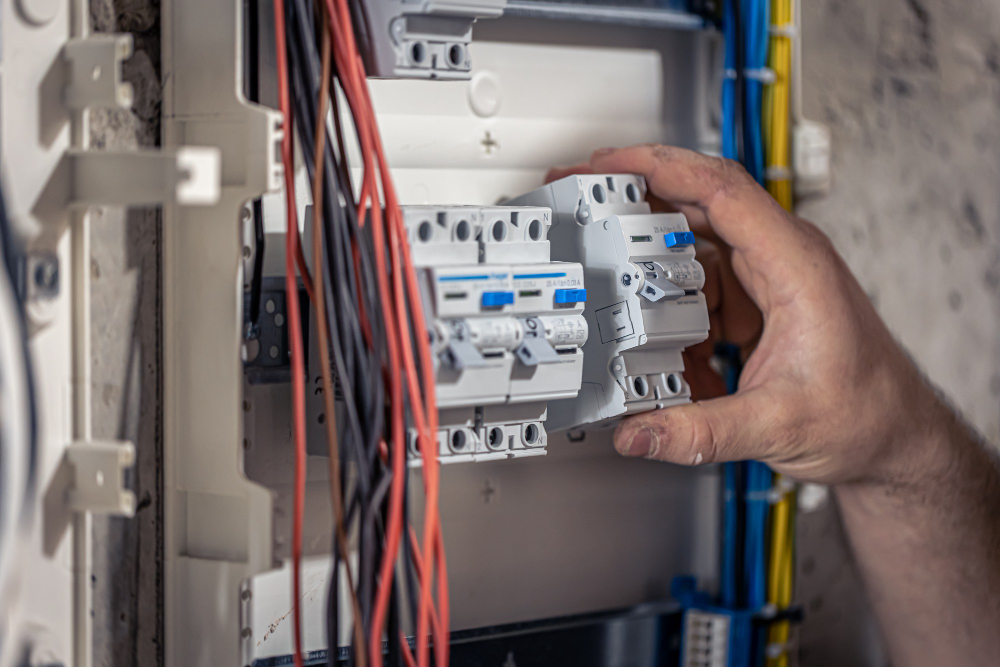Understanding the Causes of Tripping a Breaker

Your home’s electrical system is one of the most essential parts of your daily life. We use electricity for lighting, heating/cooling, cooking, entertainment, and other tasks that help us function daily. However, sometimes electrical issues can arise, leading to the most common problem of tripping a breaker. This article aims to provide you with information about the causes of tripping a breaker in your home.
1. Overloaded Circuit
An overloaded circuit occurs when you plug too many electrical devices into a single outlet. Overloading can cause excess power usage, leading to overheating and triggering the breaker to shut off. It’s an easy fix for homeowners: unplug some devices or switch to a different outlet.
2. Short Circuit
A short circuit happens when a hot wire comes in contact with a neutral or ground wire. This can cause a spark and can be dangerous, leading to fires and electrical shocks. Short circuits may happen due to wiring issues, damaged cords, or faulty devices. If you suspect a short circuit, you should turn off the power immediately and contact a licensed electrician.
3. Ground Fault
A ground fault happens when a hot wire comes into contact with a ground wire or a metal box connected to the system's ground wire. This can cause the appliance or equipment to trip the breaker, protecting you from electrical shocks. Ground faults usually occur in wet areas like bathrooms or basements. If this happens, it is best to seek a professional electrician.
4. Old Breakers
Like other equipment in your home, breakers can wear out over time. Old breakers may not trip when they should, leading to electrical issues and potential safety hazards. If you have an older home with the original breakers, then it may be time to consider upgrading the panel to a new one or have the breakers replaced by a licensed electrician.
5. Forceful Breaker Operations
If you have an old or outdated breaker panel box, then your electrical system might not be receiving the necessary amperage to run efficiently. This may lead to forceful breaker operations which can damage the circuitry and cause the breaker to trip. A switch to an appropriate new panel may resolve this issue.
Conclusion
In conclusion, tripping breakers are common electrical problems that can be easily diagnosed and resolved. However, some issues may require the services of a licensed electrician, so please do not hesitate to call one out. As always, make sure to follow safety precautions when dealing with electrical issues and turn off the main power switch before attempting to assess or fix any problems. We hope this article has provided you with some helpful information on the causes of tripping a breaker and helpful tips if you encounter any issues in the future. If you're looking for electrical contractors in Apopka, FL, contact Spectrum Electric today to schedule an appointment.